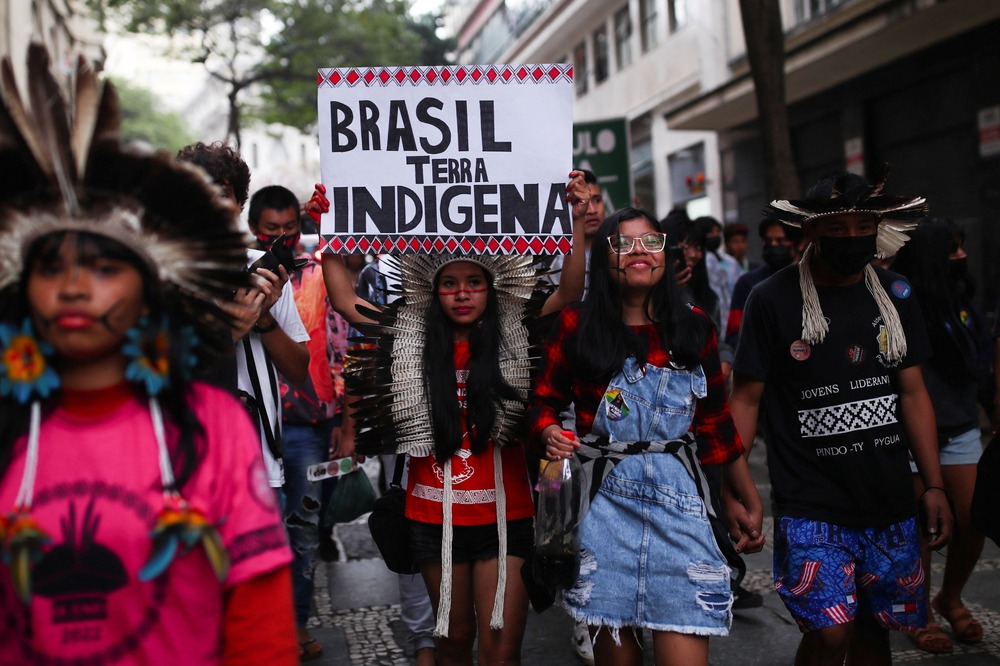According to the Bishops' Conference's Land Pastoral Commission, Brazil saw an increase in the number of disputes over land, water and forest territory in 2023, reaching 2,203 cases and affecting more than 950,000 people.
These are the highest numbers in the history of the report, which the commission, known by its Portuguese acronym CPT, has produced annually since 1985. The commission announced that it had identified 2,050 conflicts in 2022, affecting 923,000 people.
Until the end of the 19th century, most of the land in this South American country belonged to the Brazilian Empire. The Republic (declared in 1889) brought large tracts of territory into public ownership, usually occupied informally by farmers, indigenous peoples, and other traditional peoples.
The country failed to pursue a comprehensive land reform program, and much public land ended up being stolen by large landowners who created false deeds to claim ownership.
Such land grabbers are known in Portuguese as “grireiros,'' a word derived from the cricket “griro.'' They put crickets inside boxes of fraudulent documents and used them to make the documents look old, with dirt and marks left on them by the crickets that had been left in the box for several days. . Grireiros often violently expelled the original inhabitants of such lands.
Traditional communities and small-scale producers have been struggling for their territory for the past several decades and have found support in the constitution promulgated in 1988. The document stipulates that all indigenous peoples should be formally granted land within five years, but this has not happened. Established several regulations for the government's land reform program.
Conflicts over land, water and forests have intensified over the years as successive regimes have failed to provide services to these communities. Under former President Jair Bolsonaro's government (2019-2022), Bolsonaro supported Grireiros and other land invaders and made decisions to deny land to traditional ethnic groups and landless workers. As a result, these problems have become much more serious.
President Luiz Inacio Lula da Silva has pledged to secure the rights of indigenous peoples and support landless workers during the 2022 presidential campaign. However, his first year in office was disappointing for many, including CPT agents.
The number of deaths that occurred as a result of land disputes in 2023 was 31, a decrease compared to 2022, when 47 people died. The total area of disputed territory in Brazil decreased by 26.8% between 2022 and 2023 and now amounts to approximately 134,000 acres. However, all other numbers were negative.
“The current government is open to dialogue with us and has taken important steps, including removing a number of invaders from Yanomami territory last year. But it is not enough and is not what we expected. ” said Ronilson Costa, one of the CPT coordinators. OSV News.
According to the report, indigenous peoples top the list of victims of violence related to land conflicts. The Yanomami are South America's largest and relatively isolated tribe. They live in the rainforests and mountains of northern Brazil and southern Venezuela.
Costa said the grilleiros continue to steal public land, but the government is not doing anything about it. At the same time, Lula's government has given economic incentives and political power to agribusiness, particularly the sector that produces and exports goods to the disadvantage of small-scale producers and traditional communities.
“These are organizations that produce food for the Brazilian people and protect the country's biodiversity,” Costa said.
He added that many state governors and members of Congress are also aligned with large landowners and agribusinesses.
“As long as this situation continues, conflicts will continue to occur,” Costa said.
Spanish-born lay missionary Luis Ventura, secretary general of the Indigenous Missions Council of the Brazilian Bishops' Conference, told OSV News that the current government is not giving land to indigenous peoples with the necessary urgency. He said the harassment and intimidation he is facing has intensified. Of the dozens of cases awaiting Lula's decision since 2023, only two areas have been demarcated.
“A movement called Zero Invasion, made up of grilleiros, big farmers, and even police officers, is threatening and attacking several indigenous communities struggling for land. It’s the result,” Ventura said.
Brazil continues to experience death threats, attacks, and attacks on the homes of members of targeted communities. At least 172 people were assaulted and 218 received death threats in 2023. The number of cases of house damage reached 2,741.
Lincoln Fernández de Lima, who heads an association of rubber tappers and Brazil nut gatherers in the Amazonian state of Rondônia, has faced many of these problems.
He is part of a group that traditionally occupies the rainforest area, which became a nature reserve in 1996. At that time, about 50 families were allowed to remain in the area and continued their latex and nut extraction operations.
“But over the years, the Grireiros began to invade and destroy large areas. The government has never taken any action against them,” he told OSV News.
Today, only 10% of the original rainforest remains. The rest became farmland.
Peasants sent hitmen to terrorize their former occupiers, torch their homes, and kill those who resisted their forced removals. De Lima had to leave her home in September after receiving threats.
“Given that they destroyed everything, they now come for the last areas with timber. They are ready to destroy everything that is left,” he lamented. .
De Lima said that some of these farmers were powerful politicians and judges, which contributed to the authorities' inaction. His community was hoping that President Lula would somehow change the scenario, despite the fact that it is a state enclave.
“But we continue to be abandoned. We don't know whether Lula doesn't know what's going on here or whether she's deliberately not taking action,” he concluded.


